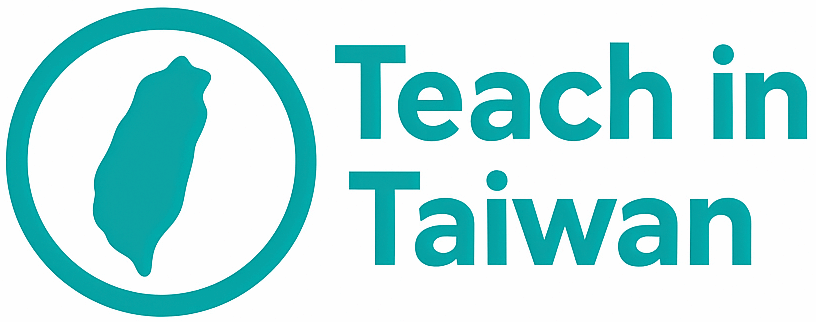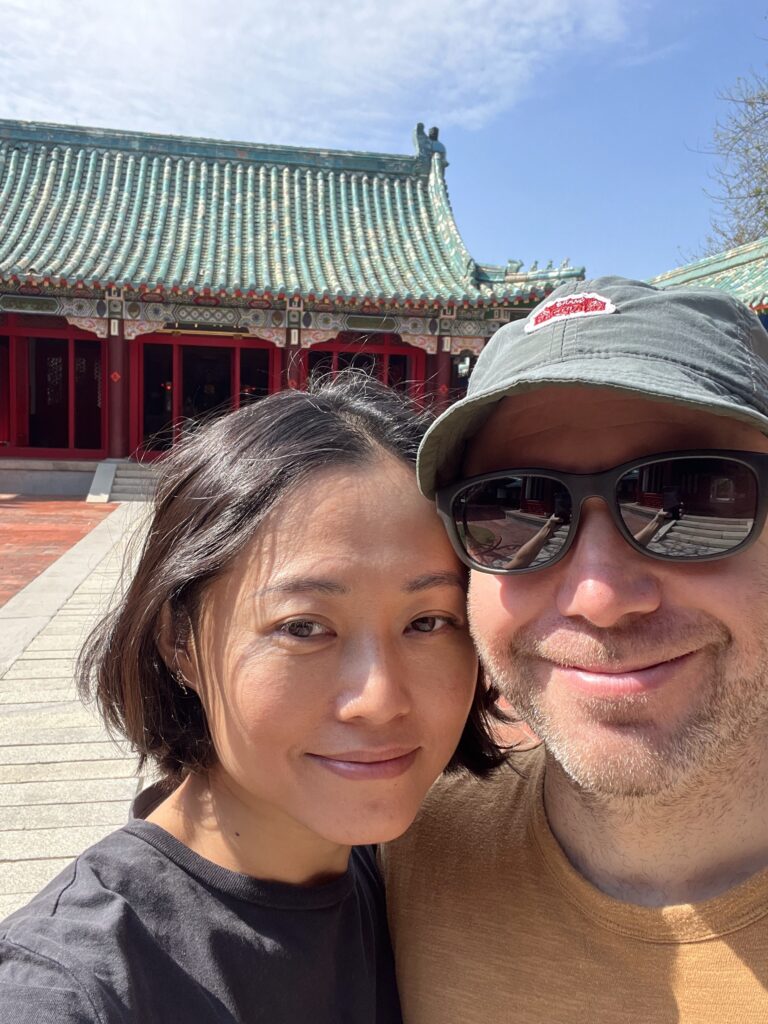Teaching English in Taiwan has become one of Asia’s most attractive opportunities for foreign educators, offering competitive salaries, rich cultural experiences, and a welcoming environment for international teachers. The island nation’s strong emphasis on English education creates consistent demand for qualified instructors across public schools, private institutions, and language centers.

The basic requirements include a four-year university degree from an accredited institution, native or near-native English proficiency, and a clean criminal background check from the teacher’s home country. While Taiwan’s schools look for more than just qualifications, seeking teachers who are excited about classroom work and cultural exchange, meeting these fundamental criteria opens the door to legitimate employment opportunities.
Understanding the complete picture involves navigating visa processes, certification expectations, and the preferences different types of schools have for experience levels. The application timeline and settling-in process also require careful planning, especially since TFETP applications for 2025/2026 academic year recruitment start from January 1, 2025 and operate on a rolling basis until positions fill up.
Basic Qualifications to Teach English in Taiwan

Taiwan has specific requirements that all English teachers must meet to work legally. Most positions require a bachelor’s degree, native English speaker status, and citizenship from an eligible country.
Educational Requirements
A four-year bachelor’s degree from an accredited university is the minimum requirement for most English teaching positions in Taiwan. The degree can be in any field – education, English, or business all work equally well.
Public schools have stricter standards. They typically require teaching licenses or certificates from your home country. Some public school programs also prefer candidates with education-related degrees.
Universities and colleges demand higher qualifications. A master’s degree is usually required for these positions. The advanced degree opens doors to better-paying university jobs.
Degree Requirements by School Type:
- Cram Schools (Buxibans): Bachelor’s degree (any major)
- Private Schools: Bachelor’s degree (any major)
- Public Schools: Bachelor’s degree + teaching license
- Universities: Master’s degree or higher
Taiwan’s Ministry of Education maintains a database of accredited universities. Your degree must come from an institution they recognize.
Native English Speaker Status
Taiwan prefers teachers who are native English speakers. This requirement isn’t always written in job postings, but it’s heavily preferred in practice.
Native speaker status generally means English is your first language. You learned it from birth in an English-speaking environment. Schools want teachers with natural fluency and cultural understanding.
Some schools make exceptions for highly qualified non-native speakers. These candidates usually need advanced English certifications like IELTS or TOEFL scores. They also need extensive teaching experience or specialized skills.
The preference for native speakers affects job availability and salary ranges. Native speakers typically have more job options and higher starting salaries.
Passport Eligibility
Taiwan accepts English teachers from specific countries. Your passport determines your eligibility for work permits and teaching positions.
Eligible Countries:
- United States
- Canada
- United Kingdom
- Ireland
- Australia
- New Zealand
- South Africa
These seven countries are considered native English-speaking nations by Taiwan’s government. Teachers from these countries can more easily obtain work permits.
Citizens from other countries face additional challenges. They need stronger qualifications and may have limited job opportunities. Some schools won’t consider applications from non-eligible passport holders.
Your passport must be valid for at least 18 months when applying for work permits. Taiwan’s immigration system is strict about documentation requirements.
Legal and Visa Requirements

Teaching English legally in Taiwan requires obtaining proper work authorization through a multi-step visa process. Applicants must complete criminal background verification and medical examinations as part of the core legal requirements to teach English in Taiwan.
Work Visa Application Process
Foreign teachers need to secure a work visa before they can legally teach in Taiwan. The process starts with finding employment at a registered educational institution that can sponsor their visa application.
Teachers must gather several documents for their application. These include a bachelor’s degree certificate, passport photos, and a completed visa application form. The degree certificate requires apostille authentication from their home country.
The employer submits a work permit application to Taiwan’s Ministry of Labor on the teacher’s behalf. This step typically takes 2-3 weeks to process once all documents are submitted correctly.
After work permit approval, teachers apply for their visa at a Taiwan representative office in their home country. Processing times vary by location but generally take 5-10 business days.
Upon arrival in Taiwan, teachers have 15 days to apply for an Alien Resident Certificate (ARC) at the local immigration office. The ARC serves as their legal identification document for the duration of their stay.
Criminal Background Check
All English teachers must provide a clean criminal background check from their home country. The document cannot be older than six months from the application date.
The background check requires apostille certification or authentication by Taiwan’s representative office in the applicant’s home country. This process adds several weeks to the overall timeline.
Teachers who have lived in multiple countries may need background checks from each location where they resided for more than six months. Some institutions also require FBI background checks for US citizens regardless of their current residence.
The document must be translated into Chinese by a certified translator in Taiwan. Most schools assist with finding approved translation services for their incoming teachers.
Health Check Procedures
Taiwan requires all foreign workers to complete a comprehensive medical examination. Teachers must undergo this health check within three months of arrival in Taiwan.
The examination includes blood tests, chest X-rays, and general physical assessments. Specific tests screen for communicable diseases including tuberculosis, syphilis, and HIV.
Only government-approved hospitals can conduct these medical examinations for visa purposes. The health check typically costs around NT$1,500-2,000 and takes 2-3 hours to complete.
Results are usually available within 3-5 business days. Teachers cannot begin work legally until they receive medical clearance and submit the health certificate to immigration authorities along with their ARC application.
Some teachers complete preliminary health checks in their home countries to identify potential issues early. However, Taiwan still requires the official examination at an approved local facility.
TEFL and TESOL Certification Expectations
Most reputable schools in Taiwan expect teachers to have a TEFL or TESOL certification with at least 120 hours of training. While not legally required for visa purposes, these certifications significantly improve job prospects and earning potential.
Recommended Teaching Certificates
Taiwan schools accept three main types of English teaching certifications. TEFL (Teaching English as a Foreign Language) certification is widely accepted for educators looking to teach English in Taiwan.
TESOL (Teaching English to Speakers of Other Languages) certificates are equally valued. Many schools specifically mention TESOL in their requirements.
CELTA (Certificate of English Language Teaching to Adults) represents the premium option. This Cambridge-endorsed certification carries significant weight with international schools and language centers.
Programs should be 120+ hours and accredited. The training must include lesson planning, classroom management, and ESL methodology components.
Online certifications are acceptable for most positions. However, some prestigious institutions prefer in-person or hybrid programs.
Benefits of Certification
Certified teachers command higher salaries in Taiwan’s English education market. Private language centers and international schools often offer salary premiums for certified instructors.
Job security improves dramatically with proper certification. Schools view certified teachers as more professional and committed to the field.
Classroom confidence increases through structured training programs. New teachers learn essential skills like lesson planning and student engagement techniques.
Career advancement opportunities expand with certification. Many administrative and senior teaching positions require TEFL or TESOL qualifications as prerequisites.
The certification process provides networking opportunities. Teachers often connect with peers and mentors during their training programs.
Certification Acceptance in Taiwan
Taiwan’s government doesn’t require TEFL certification for visa purposes, but most schools have different standards. Private language centers almost universally expect certification from new hires.
International schools maintain strict certification requirements. These institutions typically require 120+ hour programs from accredited providers.
Public school programs through organizations like Taiwan’s Foreign English Teacher Program require TESOL, TEFL, or CELTA certificates from accredited universities.
Accreditation matters significantly in Taiwan’s market. Schools prefer certificates from recognized universities or established TEFL organizations.
Some rural schools may be more flexible with certification requirements. However, urban areas and competitive positions almost always require proper credentials.
Experience and Skills School Employers Prefer
Taiwan schools value practical teaching experience and strong classroom management abilities when hiring English teachers. Schools often prefer to hire new teachers because they can train them to fit their specific teaching methods.
Teaching Experience
Most Taiwan schools don’t require extensive teaching experience for entry-level positions. New teachers can find opportunities in public schools and language centers without prior classroom experience.
Buxibans (cram schools) typically hire teachers with minimal experience. These institutions focus more on personality and communication skills than extensive teaching backgrounds.
Public schools through programs like the Taiwan Foreign English Teacher Program welcome fresh graduates. They provide training and mentorship for inexperienced teachers.
International schools and universities prefer candidates with 2-3 years of classroom experience. These positions offer higher salaries but require demonstrated teaching competency.
Previous experience with Asian students gives candidates an advantage. Understanding local learning styles and cultural expectations helps teachers adapt quickly to Taiwan’s educational environment.
Classroom Management Skills
Effective classroom management ranks as the most important skill for English teachers in Taiwan. Schools prioritize teachers who can maintain student engagement and control classroom dynamics.
Student discipline approaches differ significantly from Western methods. Taiwan schools expect teachers to use positive reinforcement rather than strict disciplinary measures.
Teachers need skills in managing large class sizes of 25-40 students. This includes organizing group activities, maintaining attention, and ensuring all students participate.
Technology integration skills are increasingly valuable. Many schools use digital whiteboards, learning apps, and online platforms for English instruction.
Cultural sensitivity helps teachers navigate parent expectations and school hierarchies. Understanding Taiwan’s respect-based culture improves classroom relationships and job satisfaction.
Age and Health Considerations for Teachers
Taiwan has specific age restrictions and health requirements for foreign English teachers. Most positions require teachers to be under 65 years old, and all applicants must complete medical examinations to obtain work permits.
Age Limit Guidelines
The standard age limit for teaching English in Taiwan is 65 years old. This applies to most teaching positions in public schools, private institutions, and language centers.
Some exceptions exist for highly qualified candidates. Universities may consider teachers over 65 on a case-by-case basis. Private tutoring doesn’t have strict age enforcement, but work permit regulations still apply.
Retirement age for foreign teachers in public schools is typically 65. Teachers approaching this age should plan their transition accordingly. Some institutions may offer contract extensions for exceptional cases.
Health Exams and Documentation
All foreign English teachers must complete a comprehensive health examination within three months of arrival in Taiwan. This exam is mandatory for work permit approval.
Required health checks include:
- Chest X-ray for tuberculosis screening
- Blood tests for HIV, syphilis, and other communicable diseases
- Physical examination by a licensed physician
- Mental health assessment
The exam must be conducted at a hospital approved by Taiwan’s health authorities. Costs typically range from NT$2,000 to NT$4,000. Teachers with pre-existing conditions should consult with medical professionals before applying.
Results are valid for one year and must be renewed for visa extensions.
Job Search and Application Essentials
Successful English teaching applications in Taiwan require specific documentation and solid interview preparation. Getting these fundamentals right sets applicants apart in a competitive market.
Essential Documents for Job Applications
Teachers need their original degree certificate, official transcripts, and a clean criminal background check from their home country. These documents must be authenticated by their country’s representative office in Taiwan or the Taiwanese embassy abroad.
A Taiwan Foreign English Teacher Program application requires additional paperwork including health certificates and proof of English proficiency. Most schools want TEFL, TESOL, or CELTA certifications as well.
Required Documentation:
- Bachelor’s degree (original and notarized copy)
- Official university transcripts
- Criminal background check (less than 6 months old)
- Health certificate from qualified physician
- Passport photos (multiple copies)
- Teaching certification (TEFL/TESOL/CELTA)
Teachers should prepare multiple copies of each document. Schools often request both digital and physical versions during the hiring process.
Professional references from previous employers or university professors strengthen applications significantly. Contact information for at least two references should be readily available.
Interview Preparation Tips
Most Taiwan teaching interviews happen via video call, so candidates need reliable internet and professional lighting setup. Schools assess both teaching ability and cultural fit during these conversations.
Preparing a short demo lesson showcasing interactive teaching methods impresses interviewers. Many schools request 5-10 minute sample lessons focusing on grammar, vocabulary, or conversation skills.
Common Interview Questions:
- Why do you want to teach in Taiwan specifically?
- How would you handle classroom management challenges?
- Describe your teaching philosophy and methods
- What experience do you have with Asian students?
Candidates should research their target school’s curriculum and student demographics beforehand. Understanding Taiwan’s education system and cultural context demonstrates genuine interest.
Dress professionally even for video interviews. Having questions prepared about work schedules, housing assistance, and professional development opportunities shows engagement with the position.
Tips for Settling Into Life in Taiwan as a Teacher
Moving to Taiwan requires understanding local customs and securing proper housing. These two elements form the foundation for a successful teaching experience.
Cultural Adaptation Advice
Taiwan’s culture blends traditional Chinese values with modern influences. Respect plays a central role in daily interactions, especially in educational settings.
Teachers should learn basic Mandarin phrases for everyday situations. Simple greetings and thank you expressions help build rapport with colleagues and students.
The concept of “face” matters significantly in Taiwan. Teachers should avoid public criticism or confrontation. Instead, they can address issues privately to maintain harmony.
Business cards require two-handed exchange as a sign of respect. Teachers receive many cards during school introductions and community events.
Food culture dominates social interactions. Colleagues often invite new teachers to group meals. Accepting these invitations helps build professional relationships.
Taiwan operates on different social rhythms than Western countries. Late dinners around 7-8 PM are normal. Many businesses close during afternoon hours but stay open late.
Teachers should download essential apps like LINE for communication and Google Translate for language barriers. These tools make daily life significantly easier.
Finding Accommodation
Most English teachers in Taiwan choose between apartments, shared housing, or teacher dormitories. Each option offers different benefits and price points.
Apartments typically require a deposit equal to two months’ rent plus the first month upfront. Teachers need an ARC (Alien Resident Certificate) to sign most rental agreements.
Popular housing websites include 591.com.tw and Facebook expat groups. Many listings appear only in Chinese, so teachers benefit from having local assistance during searches.
Location matters for commute times. Teachers should consider proximity to their school and MRT stations. Taipei’s efficient public transportation system connects most areas within 30-45 minutes.
Shared housing with other expat teachers costs less and provides instant community connections. Many teaching programs offer accommodation assistance during the first few weeks.
Teachers should inspect apartments for basic amenities like air conditioning, washing machines, and internet connections. These items aren’t always included and may require separate arrangements.


